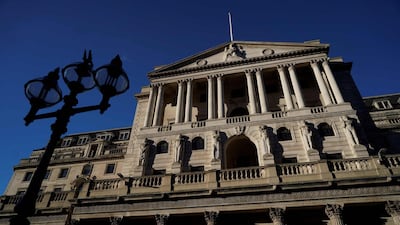While the monthly US non-farm payrolls report garnered its usual amount of attention on Friday, it was the UK and sterling that stole the show after the Bank of England’s upbeat analysis gave rise to a strong rally for the pound and a firming of UK interest rates.
In fact, the BoE’s main scenario for a strong recovery later in the year provides a glimpse of what might be around the corner if other governments get to grips with the vaccination challenge in the way the UK is doing in an effort to re-open its economy.
Markets ended last week positively in the wake of a small recovery in US employment amid an otherwise solid overall jobs report. January saw a 49,000 increase in non-farm payrolls, after a revised 227,000 drop in December, while the unemployment rate fell to 6.32 per cent from 6.74 per cent previously.
Within the details of the report, there was a 21-year high of 35.0 in the January workweek, a 0.9 per cent rise in the number of hours worked, and a 0.2 per cent hourly earnings increase that kept the yearly gain at 5.4 per cent year on year.
However, over the course of the week, it was probably the BoE’s policy announcement that captured the markets’ imagination the most as it highlighted the expectation of a recovery in UK economic growth as the Covid-19 crisis begins to normalise.
The BoE left the policy rate unchanged at 0.1 per cent and unanimously voted to keep the size of its bond buying programme steady at £895 billion, both of which were expected. But it was its guidance on negative interest rates that caught the eye, downplaying suggestions that they might not be on their way at least for another six months, if at all.
The BoE effectively said that financial institutions were not yet ready to implement sub-zero interest rates, but told them to start preparing so that they could “implement a negative bank rate at any point after six months”.
Even then there was little else in the report that suggested negative rates would, in fact, be needed in six months’ time, with the BoE revising many of its longer-term economic forecasts upward. The return of strict lockdown measures means that the UK economy will probably contract in the current quarter by 4 per cent, according to the BoE, but the Monetary Policy Committee expects a strong pick up in activity thereafter.
Consumer spending in particular is expected to rise as restrictions are eased and vaccinations help to dampen residual health risks, with gross domestic product projected to return to pre-crisis levels by the first quarter of 2022. The updated BoE projections see 10 per cent GDP contraction last year, and while the forecast for 2021 was cut to 5 per cent from 7.25 per cent expected previously, the projection for 2022 was lifted to 7.25 per cent from 6.25 per cent.
The policy announcement came as confidence grows about the effectiveness of the vaccination programme under way in the UK. The British government said it had already vaccinated over 10 million people, with 500,000 of those already receiving their second doses, making it one of the most successful and aggressive vaccination programmes around the world. The UK aims to offer vaccines to 15 million people by mid-February and millions more people aged 50 and over and other priority groups by spring.
It is no surprise then that given this progress, the debate is already turning to how quickly lockdown restrictions might be lifted and about what form the process will take. This reinforces the BoE’s growing optimism about the economic outlook, especially in the second half of the year.
So while it may be prudent for the BoE to keep the option of negative rates on the table, it is becoming less likely they will actually have to be used unless the situation unexpectedly deteriorates again, such as virus mutations impeding the easing of lockdown restrictions.
The pound and UK gilt yields firmed as they priced out negative interest rates and on the belief that the rollout of the vaccine will continue successfully, pointing the rest of the world towards more optimistic scenarios that could be seen once vaccination progress becomes more widespread.
Tim Fox is a prominent regional economist and an adviser to Switzerland based St Gotthard Fund Management


